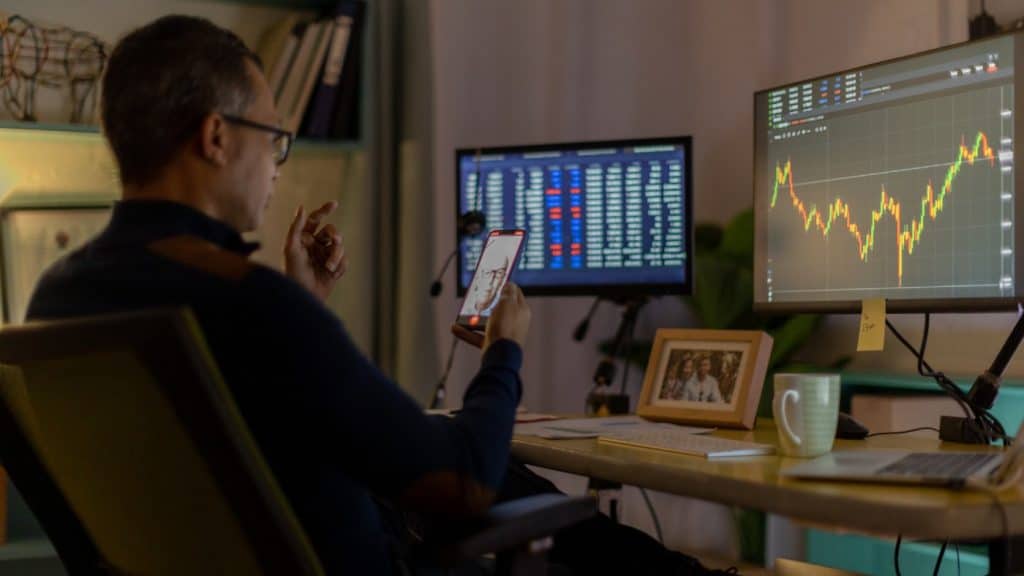Share this page:
When I first started investing, I made lots of mistakes that ended up costing me a lot of money. New research suggests I’m not alone in this. Read on to find out how to avoid these common investing mistakes.
The investing mistakes I made
I jumped into investing without really knowing what I was doing. My only saving grace was that I had sufficient cash savings, so I wasn’t left short as a result of my investing mistakes.
I decided to put £500 into one individual stock. The exact stock doesn’t matter – what happened to it can happen to any company’s stock. I held the stock for a few weeks before Covid-19 hit and the stock market fell.
The stock declined in value by around 20%, effectively losing me £100. Of course, it could well have increased in value the next day. But at that point, I didn’t care. I took my money out and was put off investing for almost a year.
This demonstrates three key investing mistakes.
Firstly, I only invested in one stock. It’s always best to diversify your investments. Index funds and ETFs can be a good starting point for new investors.
Secondly, I wasn’t investing for the long haul. Had I remained invested, the stock would likely now be up and I would have more than the £500 I originally invested.
Finally, I wasn’t consistent. If I kept investing even £200 a month during the period I stopped, I would have had £2,400 invested and made around £170 in returns – based on a 7% annualised return.
This is all money I lost out on due to my investing mistakes. Learn from my mistakes so you don’t miss out too.
The most common investing mistakes
New research from Barclays Smart Investor found a worrying number of British investors are putting all of their eggs in one basket, with a quarter admitting to not having a diversified portfolio.
One in three (34%) believe you should only invest in one company. This leaves you open to significant risk should your individual investment lose value.
Perhaps more worryingly, 23% of respondents do not understand what they’ve invested in, and 22% are investing without having sufficient cash savings to act as a buffer.
A further 15% say they are investing without any kind of plan.
How to avoid these investing mistakes
While a lot of people make investing mistakes, Clare Francis, director of savings and investments at Barclays Smart Investor, says it doesn’t have to be complicated.
She explains: “Understanding some basic rules will help mitigate any risks associated with investing and will help people have a greater chance of getting a better return on their money than cash savings, especially when taking inflation into account.”
Here are Clare’s key tips for avoiding the most common investing mistakes.
1. Have cash savings
Investing does not replace the need to have cash savings. You should always have an emergency fund – ideally, at least three to six months of expenses – saved up. This will cover you if your circumstances change or if you’re hit with an unexpected bill or expense.
2. Time is your friend
There will be periods when the stock markets fall, but there will also be periods when they rise.
The longer you keep your money invested, the more time it has to grow and the lower your risk of losing money.
For this reason, investing tends to be more appropriate for financial goals that are some way off, such as retirement. Even if you do not have a specific goal to aim for, the same principles apply and it can provide you with greater financial security in the future.
3. Always diversify
While many people – myself included! – start out investing by buying shares in a single company, investing in funds or diversifying across a range of stocks can reduce your risk exposure.
Diversifying and spreading your money between different companies, sectors, geographical regions and asset classes, you can reduce the chance of a loss.
If one company or sector is not performing well, there’s a good chance others you are invested in will be doing better.
Was this article helpful?
YesNo
About the author
Katie is a financial journalist and personal finance writer. She writes on a range of topics including investing, insurance, and managing your money.
Share this page:
Some offers on The Motley Fool UK site are from our partners — it’s how we make money and keep this site going. But does that impact our ratings? Nope. Our commitment is to you. If a product isn’t any good, our rating will reflect that, or we won’t list it at all. Also, while we aim to feature the best products available, we do not review every product on the market. Learn more here. The statements above are The Motley Fool’s alone and have not been provided or endorsed by bank advertisers. John Mackey, CEO of Whole Foods Market, an Amazon subsidiary, is a member of The Motley Fool’s board of directors. The Motley Fool UK has recommended Barclays, Hargreaves Lansdown, HSBC Holdings, Lloyds Banking Group, Mastercard, and Tesco.
This post was originally published on Motley Fool




